Dreaming of fresh, homegrown veggies but limited by space or unsure where to start? You’re not alone. Many Australians face the challenge of creating a productive vegetable garden in small backyards or urban settings.

However, with thoughtful planning and clever garden design, you can transform even the tiniest patch into a thriving oasis.
Starting With the Basics
Choosing the Right Location
Pick a spot that gets at least six hours of direct sunlight daily. Good air flow is crucial to keep diseases at bay.
Soil Preparation and Testing
Check your soil’s pH level and nutrient content. Clear out perennial weeds and enrich the soil with well-rotted compost or manure for better fertility.
Selecting the Right Vegetables
Start with easy-to-grow veggies like potatoes, courgettes, beans, salad leaves, and beetroot. These are beginner-friendly and yield quickly.
Innovative Garden Layouts
Innovative garden layouts can transform even the smallest spaces into productive vegetable patches. These methods make gardening efficient and enjoyable.
Planning a Potager Garden
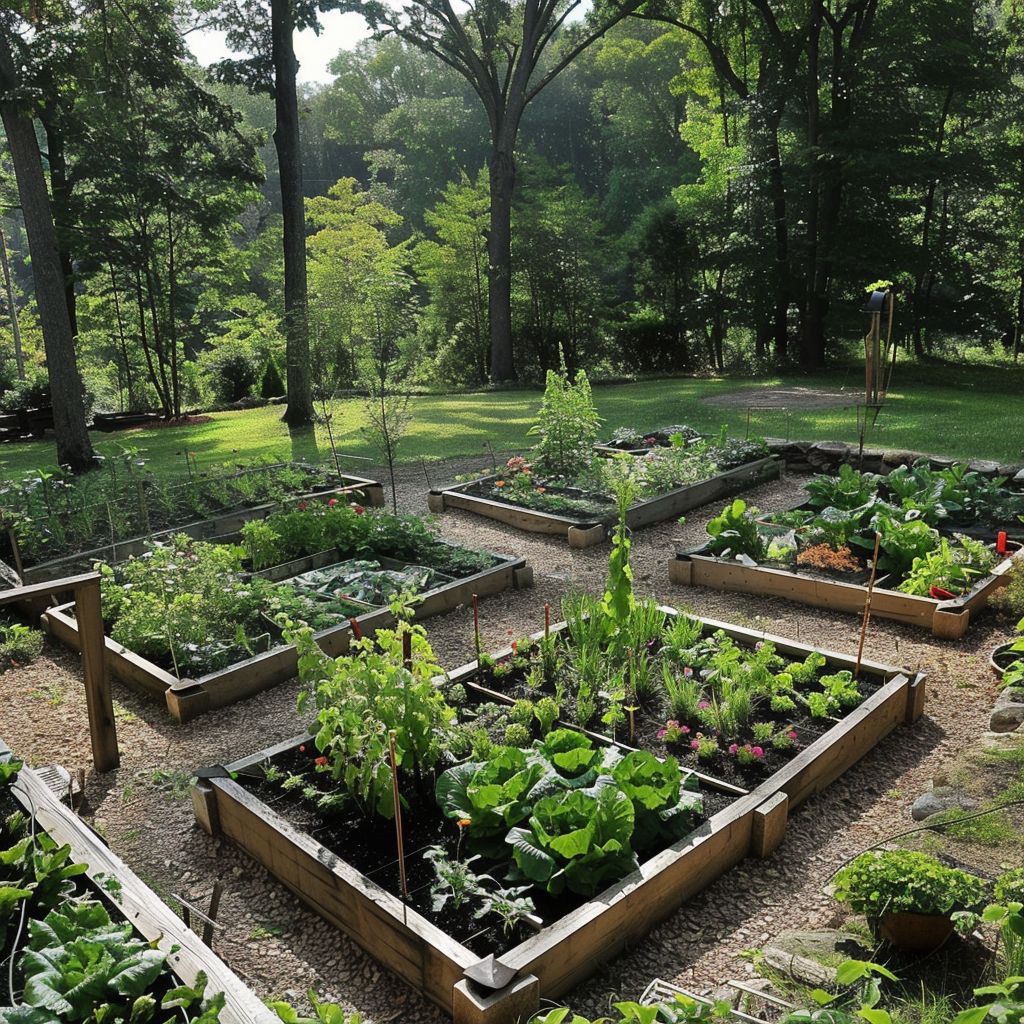
A potager garden blends ornamental plants with edibles, creating a visually appealing space. This setup is perfect for small areas as companion planting helps keep the soil healthy and reduces empty spots. You’ll enjoy both beauty and bounty in your backyard.
Trying Square Foot Gardening
Square foot gardening involves dividing your plot into small, manageable squares. Each section gets dedicated to a different crop, making space use efficient. It’s great for beginners as it simplifies crop rotation and maintenance.
Designing With Raised Beds
Raised beds are fantastic for growing root vegetables like carrots and parsnips. They come in various shapes and sizes to fit any space you have available. Raised beds also improve drainage and soil quality, leading to better plant growth.
Vertical and Small Space Garden Solutions
You can transform even the smallest spaces into productive gardens with some creative strategies. Here are some practical ideas to get you started.
Utilising Vertical Gardens
- Reusing Plastic Bottles: Convert plastic bottles into mini planters for an eco-friendly vertical garden. Cut them, fill them with soil, and hang them on a wall or fence.
- Recycling Wooden Pallets: Turn wooden pallets into functional planters or trellises. They’re great for growing herbs and small vegetables vertically.
- Freestanding Structures: Use materials like bamboo to build freestanding vertical gardens. These structures can be placed anywhere in your yard.
- Trellises: Support climbing plants such as peas, beans, and tomatoes with trellises. This keeps them off the ground and maximises your growing space.
Growing Vegetables in Containers
- Salad Towers: Create a salad tower using wire mesh and plastic to grow greens in a compact space. Stackable designs save room while providing plenty of fresh produce.
- Hanging Gardens: Grow strawberries, tomatoes, and other vegetables in hanging baskets. This method makes efficient use of overhead space while adding visual interest to your garden.
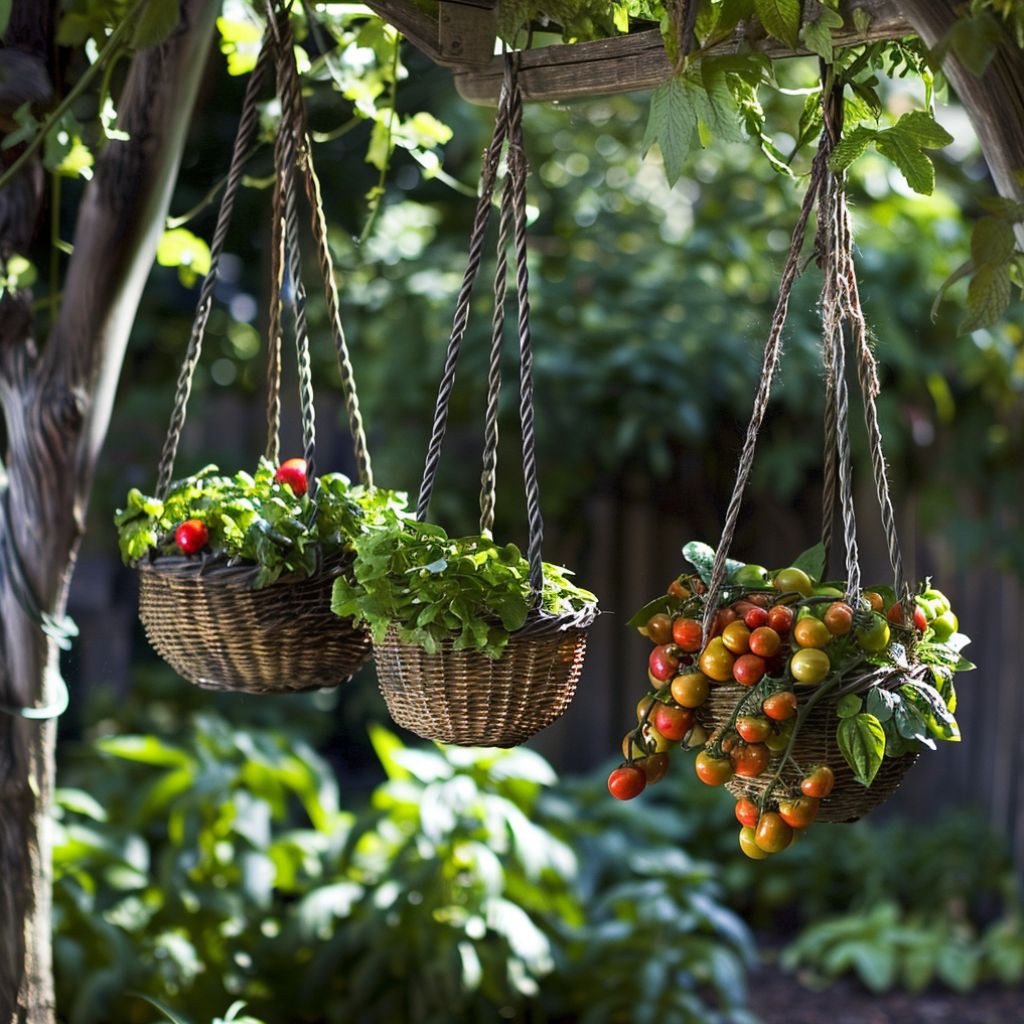
Maximising Space with Hanging Planters
For Australian corner lot yard plans, hang planters from walls or fences to make the most of limited gardening space. Select lightweight containers that won’t stress the supports but still provide ample soil for robust plant growth.
Theme-Based Vegetable Gardens
Theme-based vegetable gardens can make your gardening experience both fun and functional. Whether you want fresh herbs for cooking or a constant supply of salad ingredients, these themed gardens have you covered.
Creating a Culinary Herb Garden
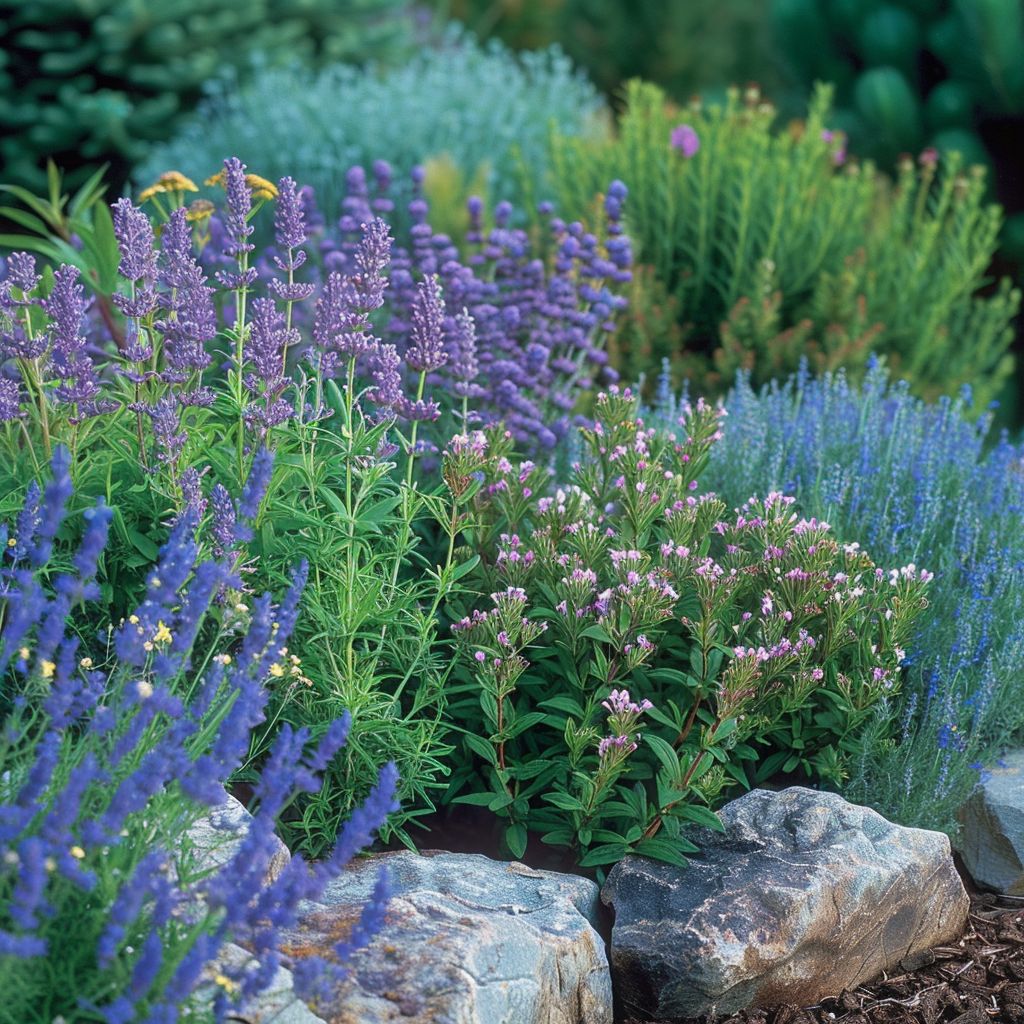
Planting an array of herbs such as rosemary, thyme, and lavender can transform your garden into a sensory delight. These herbs are not just fragrant; they’re perfect for flavouring various dishes. Consider adding basil and oregano to complete your culinary herb collection.
Setting Up a Salsa Garden
A salsa garden is ideal for those who love fresh, homemade salsa. Grow tomatoes, onions, jalapeños, cilantro, and garlic together. This combination ensures you’ll always have the best ingredients at hand for making delicious salsa.
Designing a Salad Garden
Focus on leafy greens like lettuce, spinach, and arugula in your salad garden. Add cherry tomatoes, cucumbers, and carrots to round out the mix. This setup provides everything you need for fresh salads right from your backyard.
These theme-based gardens not only boost productivity but also add beauty to your outdoor space.
Sustainable Practices in Vegetable Gardening
Sustainable gardening is all about creating a balanced ecosystem. These practices help maintain healthy soil, save water, and reduce environmental impact.
Mulching for Healthier Soil
Mulch helps retain soil moisture and suppress weeds. Use organic materials like straw, wood chips, or leaf mould. This not only improves soil structure but also provides essential nutrients as it decomposes.
Using Organic Pest Control
Avoid chemicals by opting for organic pest control methods. Introduce beneficial insects like ladybirds to eat aphids. Use neem oil or insecticidal soap sprays to tackle other common pests.
Incorporating Companion Planting
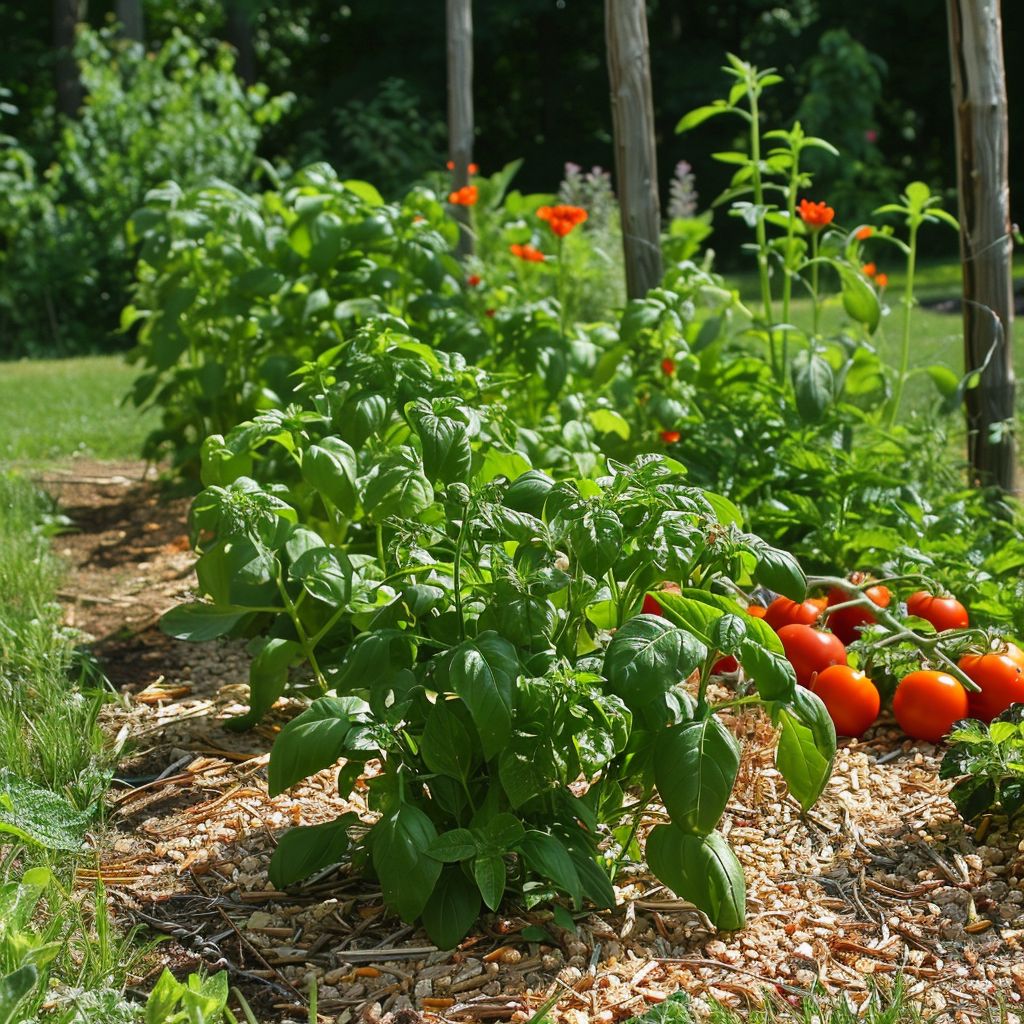
Companion planting can boost growth and deter pests naturally. Plant basil near tomatoes to repel whiteflies and enhance flavour. Marigolds with your vegetables can keep nematodes at bay while attracting beneficial insects.
Seasonal Care and Maintenance
Proper seasonal care is key to a thriving vegetable garden. Here are some strategies to help you manage your garden year-round.
Water Management Strategies
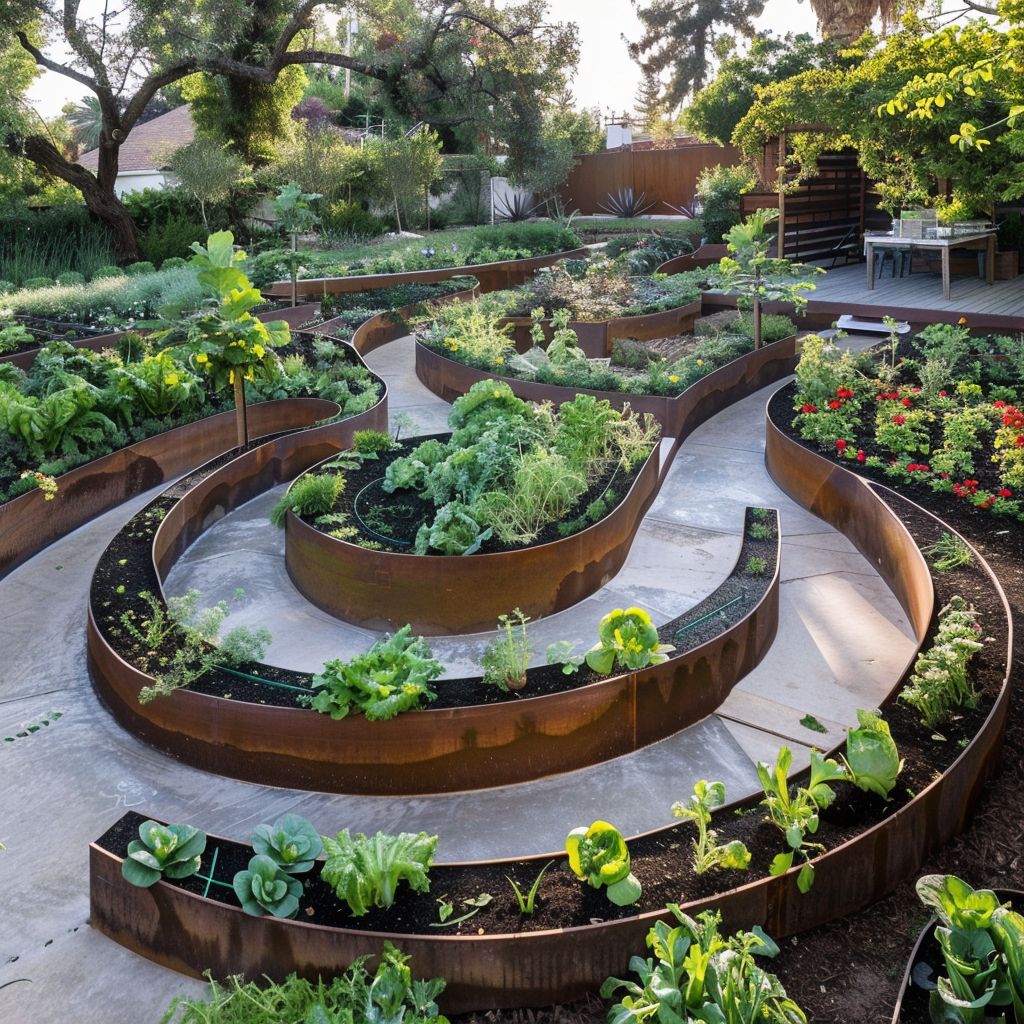
Mulch your beds to retain moisture and reduce water loss. Collect rainwater in a water butt for eco-friendly irrigation. Dig shallow trenches for easy watering, especially in light soils.
Fertilising Your Vegetables
Use organic compost to boost soil health and fertility. Avoid over-fertilising as it can cause excessive growth but lower yields. Keep an eye on plant needs and adjust accordingly.
Handling Pests and Diseases
Skip pesticides; foster a self-sustaining ecosystem instead. Introduce beneficial insects like ladybirds to control pests naturally. Rotate crops yearly to minimise disease risk in your garden.
Harvesting and Extending Your Growing Season
Knowing When to Harvest Vegetables
Timing’s key for optimal flavour. Early potatoes, spring onions, and baby carrots are best picked fresh. Their quality drops quickly after harvesting.
Different veggies have unique harvest times. Tomatoes ripen in late summer. Asparagus provides a steady yield for up to 10 years with minimal effort.
Succession Planting to Extend Harvests
Stagger your plantings for continuous harvests. This method keeps your work manageable and supplies fresh produce regularly.
Fast-growing veggies like radishes, lettuce, and kale do well with this approach. Sow seeds every two to four weeks for the best results.
Using Greenhouses in Cooler Climates
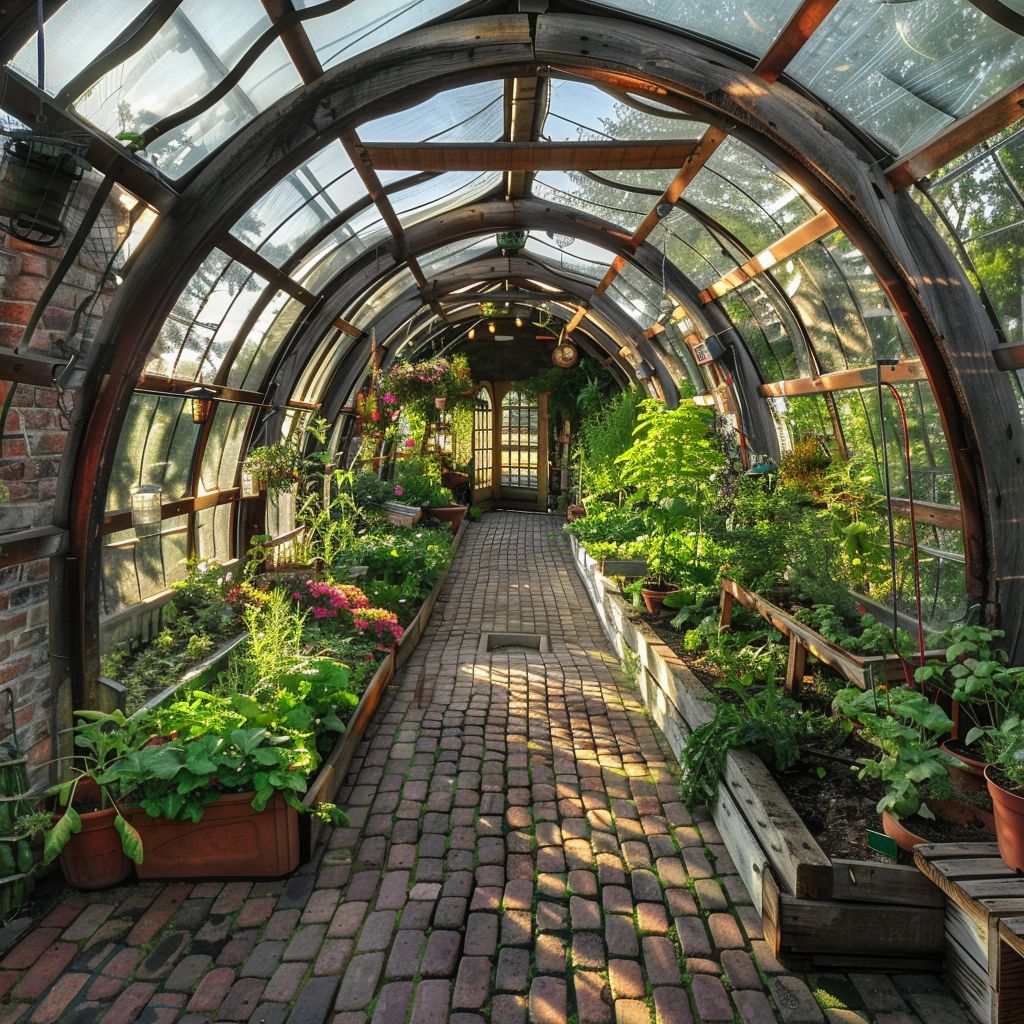
Greenhouses help extend the growing season in cooler areas. They provide a controlled environment that protects plants from frost.
Consider setting one up if you live in a colder region. You’ll enjoy fresh vegetables even when outdoor conditions aren’t ideal.
Up next:
